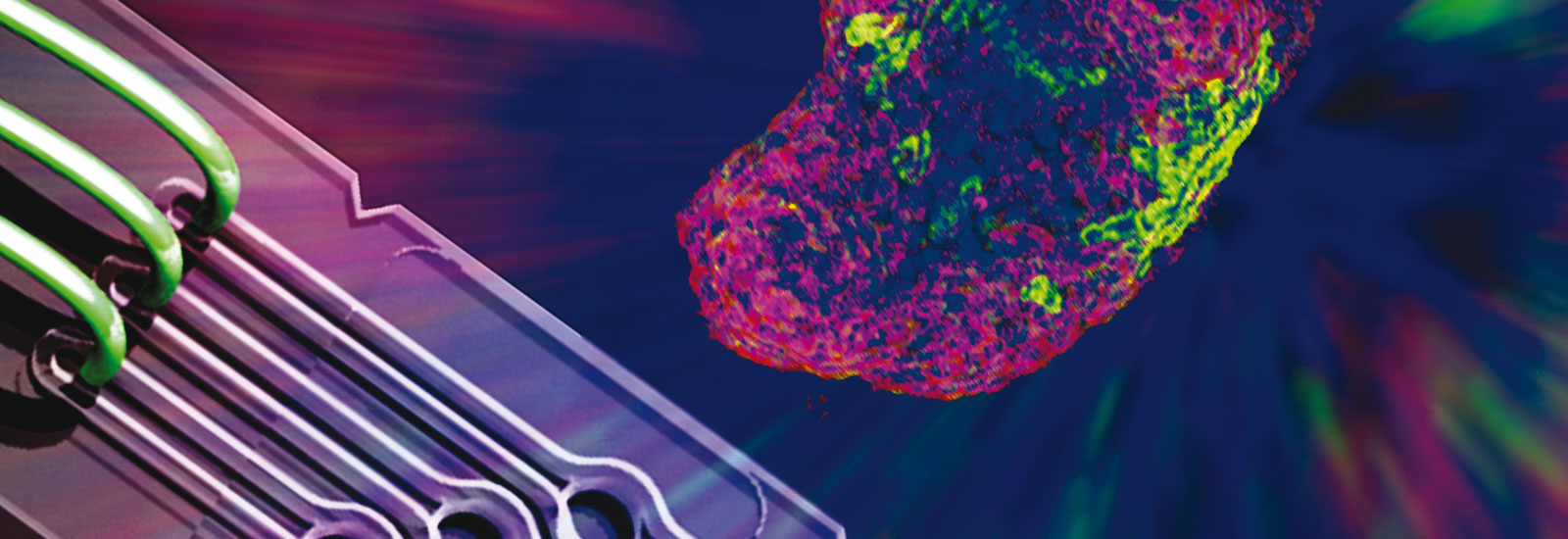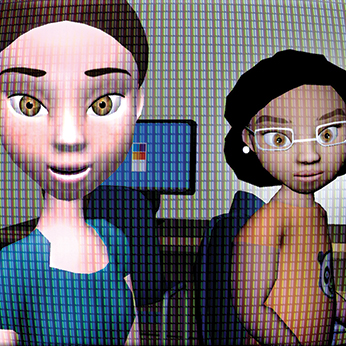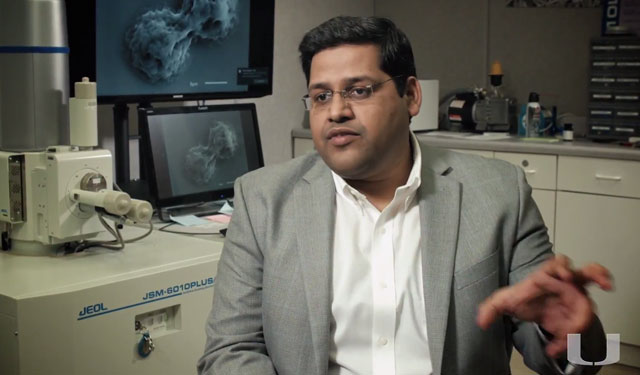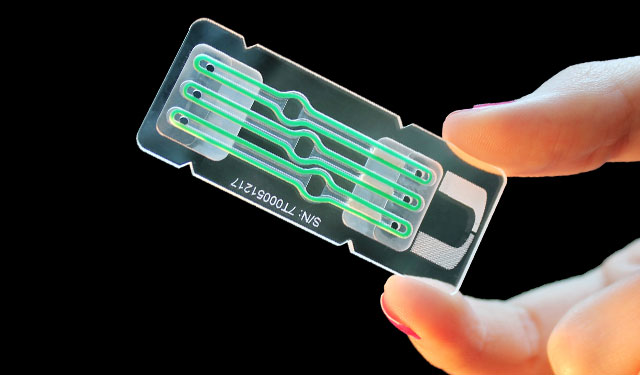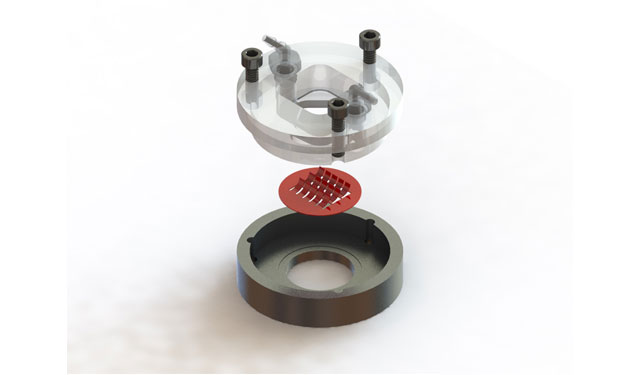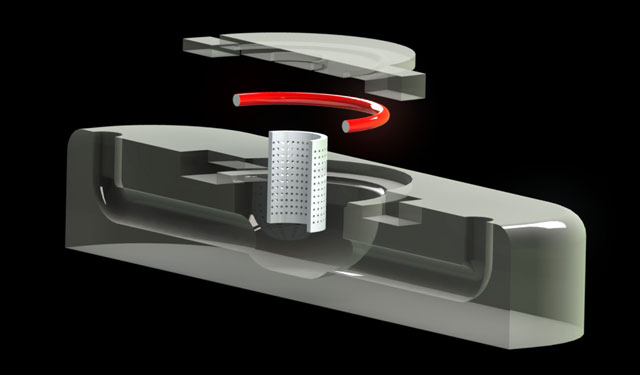by Jessica M. Castillo, Andi Fuentes and COE Department of Biomedical Engineering
Imagine simulating diabetes, lung cancer, or cardiac disease on a slice of material no bigger than a credit card. Though it sounds like science fiction, this work is a day-to-day reality for some University of Miami College of Engineering researchers.
In a revolutionary new approach, Ashutosh Agarwal, assistant professor of biomedical engineering, and of pathology at the Miller School of Medicine, is combining traditional engineering structures and materials, like metal or plastic, with stem cells from rodents and humans to create a heart, pancreas, and lungs that mimic the real organ, including how it functions both normally and when it is diseased. The chips, small enough to fit in your hand, are created through 3-D printing and 3-D milling with intricate, precise measurements.
Through this technology of recreating functional models of human physiology and pathology, UM engineers, collaborating with researchers from the Miller School of Medicine as well as industrial partners, are able to test pharmaceutical therapies, control the differentiation of stem cells and uncover mechanisms of human disease.
“Recreating human organ-level complexity in a dish, in both health and in disease, opens up several important applications,” says Agarwal. “We can now test drug molecules before running clinical trials, dive deep into disease mechanisms and create better stem cells for therapy.”



